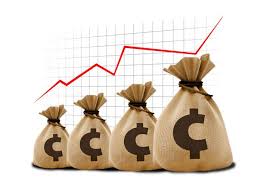The Government Statistician has indicated that the effect of the depreciation of the local currency, the cedi against major trading currencies (especially, the U.S Dollar) would continue to affect the rate of inflation in the country.
“The policy decision to be taken in the next few months will determine if the current volatilities in the exchange rate will continue to influence inflation or not”, Professor Samuel Kobina Annim said.
Year-on-Year October 2022 inflation surged to 40.4% with imported inflation recording very high rate than locally produced items. Inflation for locally produced items was 39.1%, whilst inflation for imported items was 43.7% in the month of October 2022.
This shows the sharp relationship the Cedi depreciation has on the untamed imported inflation. However, the Finance Minister has reiterated government’s commitment to stabilising the Ghana cedi by the end of the year. According to him, government together with the Bank of Ghana have adopted measures including dealing with speculation which he described as one of the major causes of the depreciation of the cedi in recent times.
“As the Minister of Finance, no one needs to tell me the ravages of the cedi depreciation which has become an albatross on the neck of our local industries and the high cost of living for all citizens”, Ken Ofori-Atta admitted at an Association of Ghana Industries (AGI) forum in Accra, last week.
Professor Annim, therefore, believes a drastic policy decision can make a huge impact on the rate of inflation.
“In terms of how the exchange rate is impacting on this [inflation], one has to look at two things, thus the past through effects and how many items experience the effects as well as the timing of the effects”.
“So it is possible that the impact of the exchange rate will linger on for a number of months. But the determination of the months will depend on the kind of policy to be introduced in the next two to three months”, he pointed out.
He added that “so whether we peak or not will depend on what is happening and the items that are going to be affected and the price increases”.
Meanwhile, Mr. Ofori-Atta after giving assurance to captains of industry, charged industry to increase their productive capacity to stimulate job creation, adding that “we cannot continue to be a nation of importers.”
He cited an example such as the country imports about GH¢4 billion worth of fish, GH¢1.9 billion worth of chicken and GH¢487 million worth of meat in 2022.

